Exploring the Glorious Baseball Art of Graig Kreindler

At home in Brooklyn today and raised as a follower of the Bronx Bombers, baseball artist Graig Kreindler paints the greats from both storied franchises. And the greats, period. And whoever else he is commissioned to paint.
And yes, he was named after the Yankees' third baseman of the 1970s and 80s, Graig Nettles.
I’d been following his Twitter feed for years, usually retweeting with whatever emotion I felt at the time, inspired by the particular painting. More often than not, my impulse was to type the word “glorious.” Or "wow," or "I want to go to there." I vowed to fill my house with Kreindler's work some day. When I have a house. And when I can afford to splurge. Until that day arrives, I'll follow that Twitter feed, gaze lovingly at the website and try not to weep.
Meanwhile, with no action to write about and a desire to give some love to baseball people who I think you ought to know about, I reached out to Kreindler to collaborate on a piece. And I thought, even for those who know about and enjoy his work, why not give them a little of the behind the scenes, and some high-resolution images as a sampling, all in one place? A follow-up video will be published shortly, maybe with a little a piano music for effect.
Below are 16 of my favorite pieces painted by the School of Visual Arts in Manhattan-trained Kreindler, 12 of them accompanied by the artist’s comments. And here they are:
Ed Walsh. "Study of Ed Walsh, 1913", 7" x 5", oil on linen mounted to board.
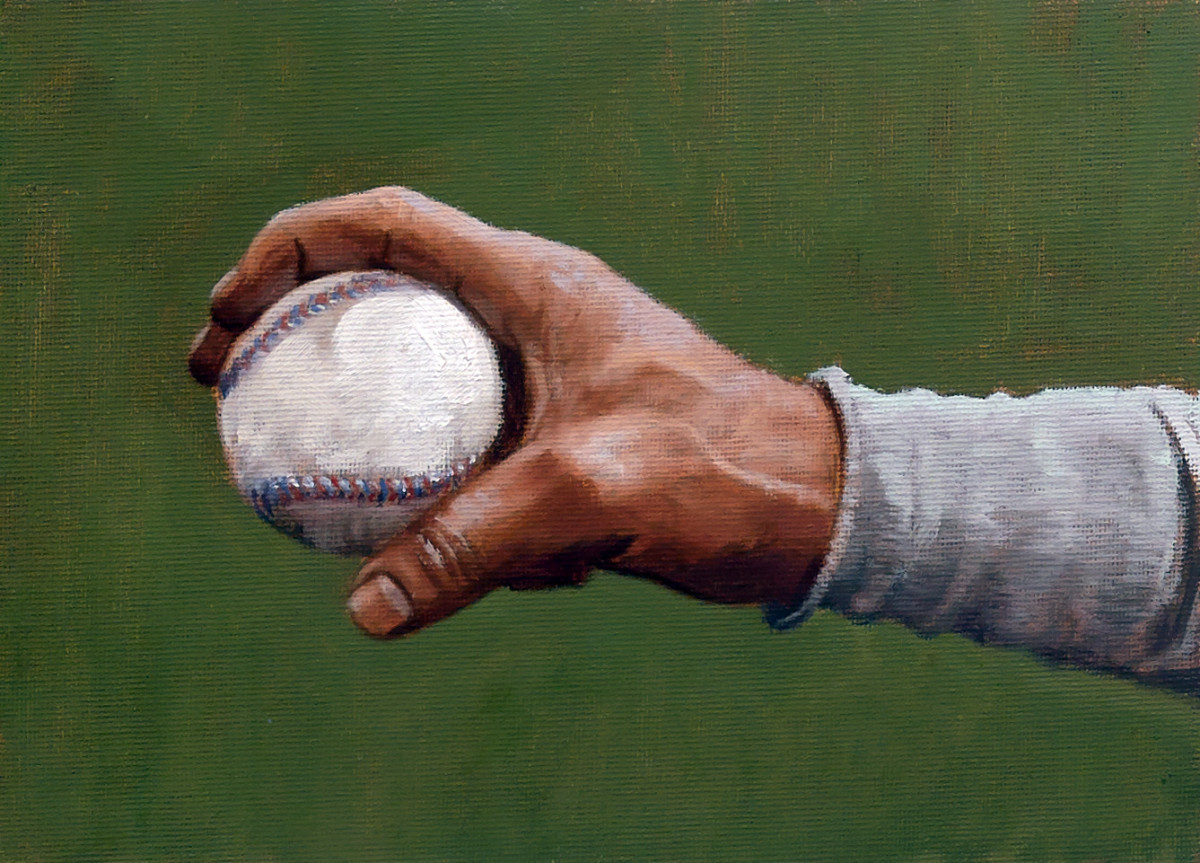
Walter Johnson. "The Weiser Wonder", 22" x 28", oil on linen. "This painting was a lot of fun to do, especially because Walter's so young in it. I had never seen images of him on any club before the Senators, so catching a glimpse of his days with the Weiser Kids was special. Trying to reproduce the 2-D look of the photographer's background while keeping Johnson and the rug underneath his feet 3-dimensional was extra challenging, and when finished, quite rewarding."
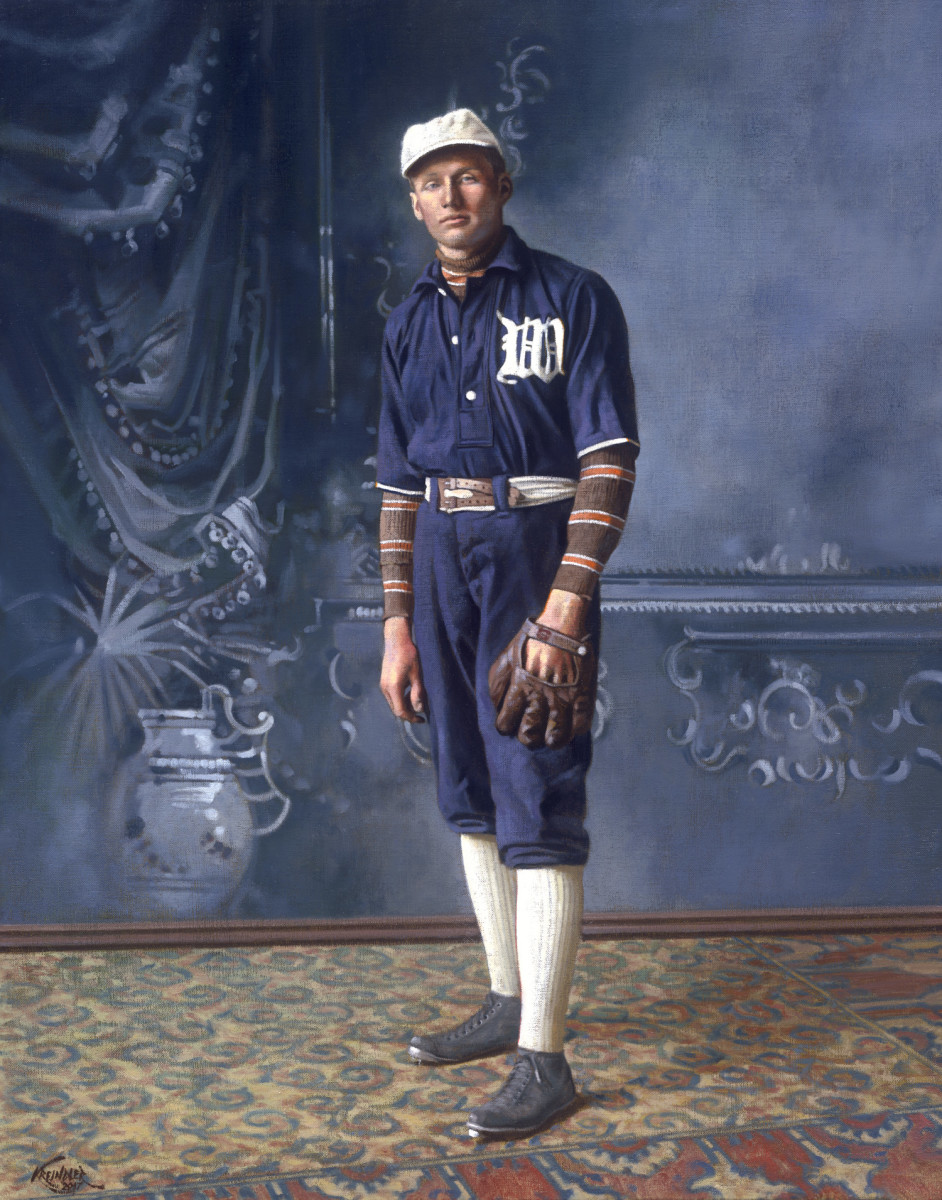
Henry Aaron."Henry", 16" x 24", oil on linen. "Based on a Hy Peskin image, everything about what he captured is absolute gold: Henry's eyes, the Braves uniform, County Stadium behind him, the sunlight - it's just all there. I've painted variations of this theme a few times and it has yet to get old."
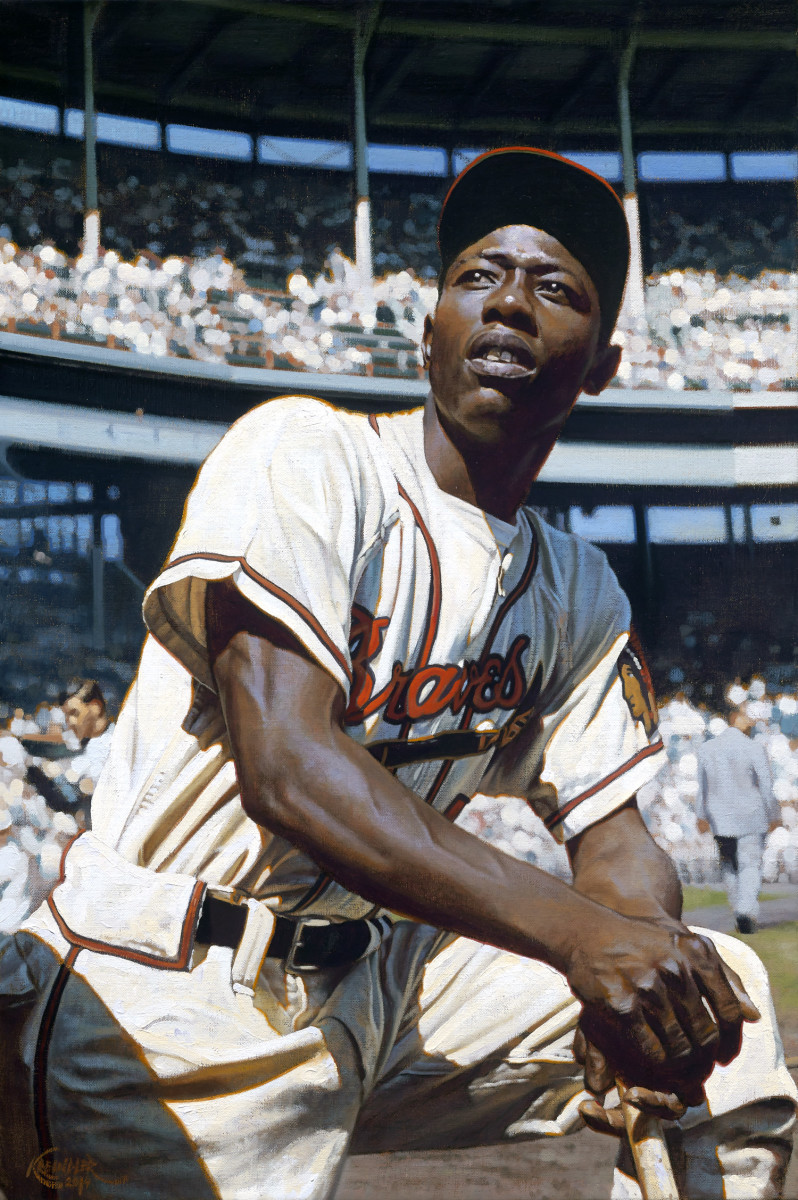
Roger Maris."61", 52" x 38", oil on linen. "When I first saw the original photograph this was based on, I was struck by how much it lacked compared to how I always imagined the scene. The footage of him hitting the home run shows the event in the shadows of Yankee Stadium, with the sun garden in left. I thought it was important for me to push that here, keeping Maris in the shade and illuminating the crowd along the third baseline."
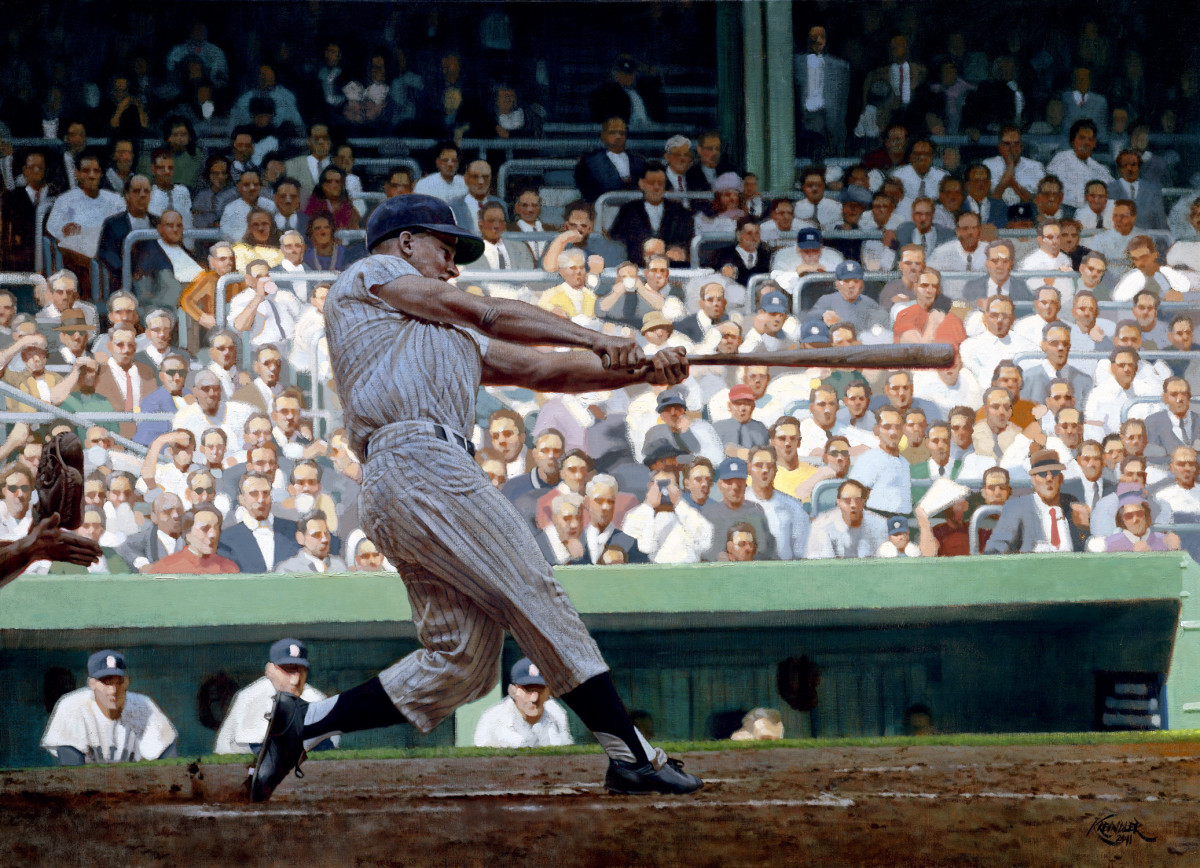
Roberto Clemente. "Steam", 24" x 18", oil on linen. "I had always been struck by this image ever since I saw it on Clemente's 1956 Topps card (#33), especially because of the RF wall in Ebbets being directly behind him. When I saw the actual photograph that was the basis for the card, I had to jump on it immediately."
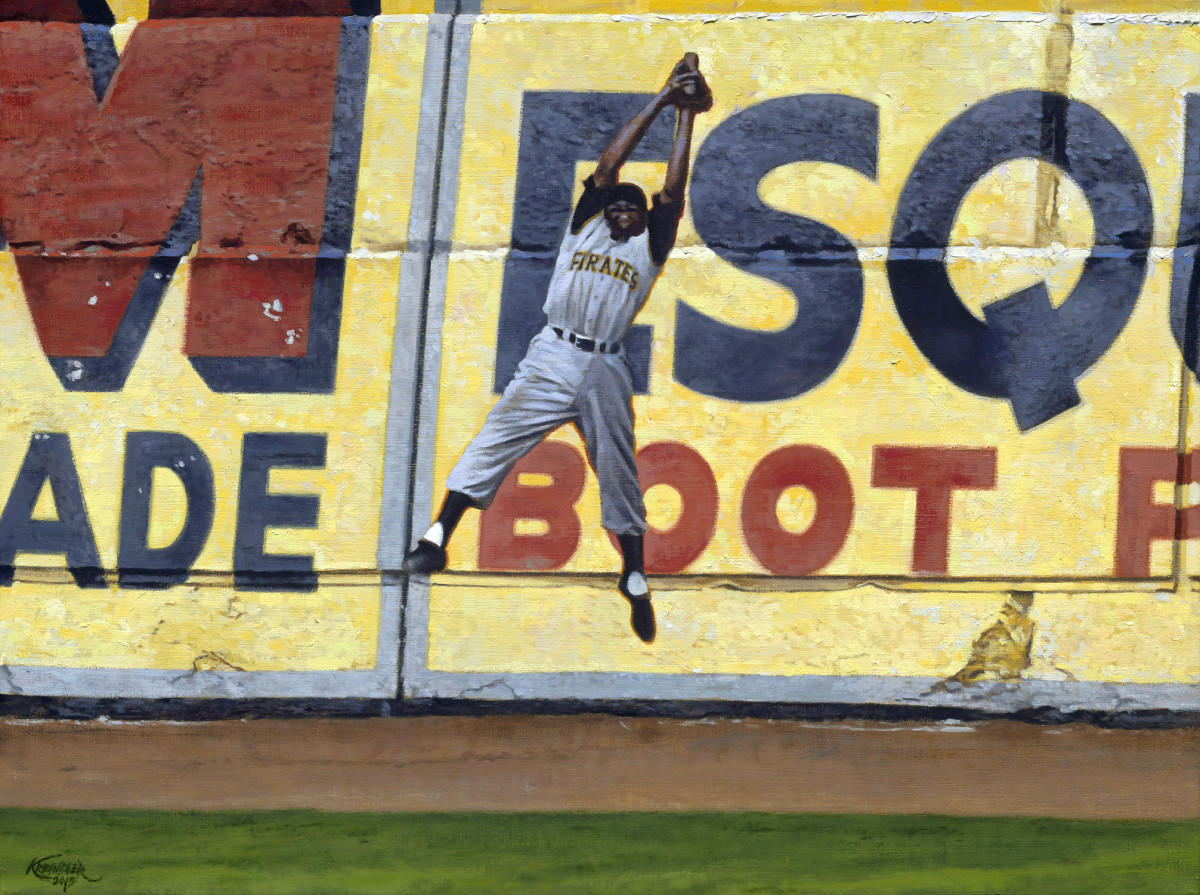
Jackie Robinson: "Sisler's Student", 46" x 56", oil on linen. "This painting is obviously all about that #42 coming into the light, as well as the metaphor of Jackie doing the same. It was a complicated image to do right, as the clay/dirt of Ebbets in that area was pretty orange and red - I had to make sure I didn't push it too much into garish territory."
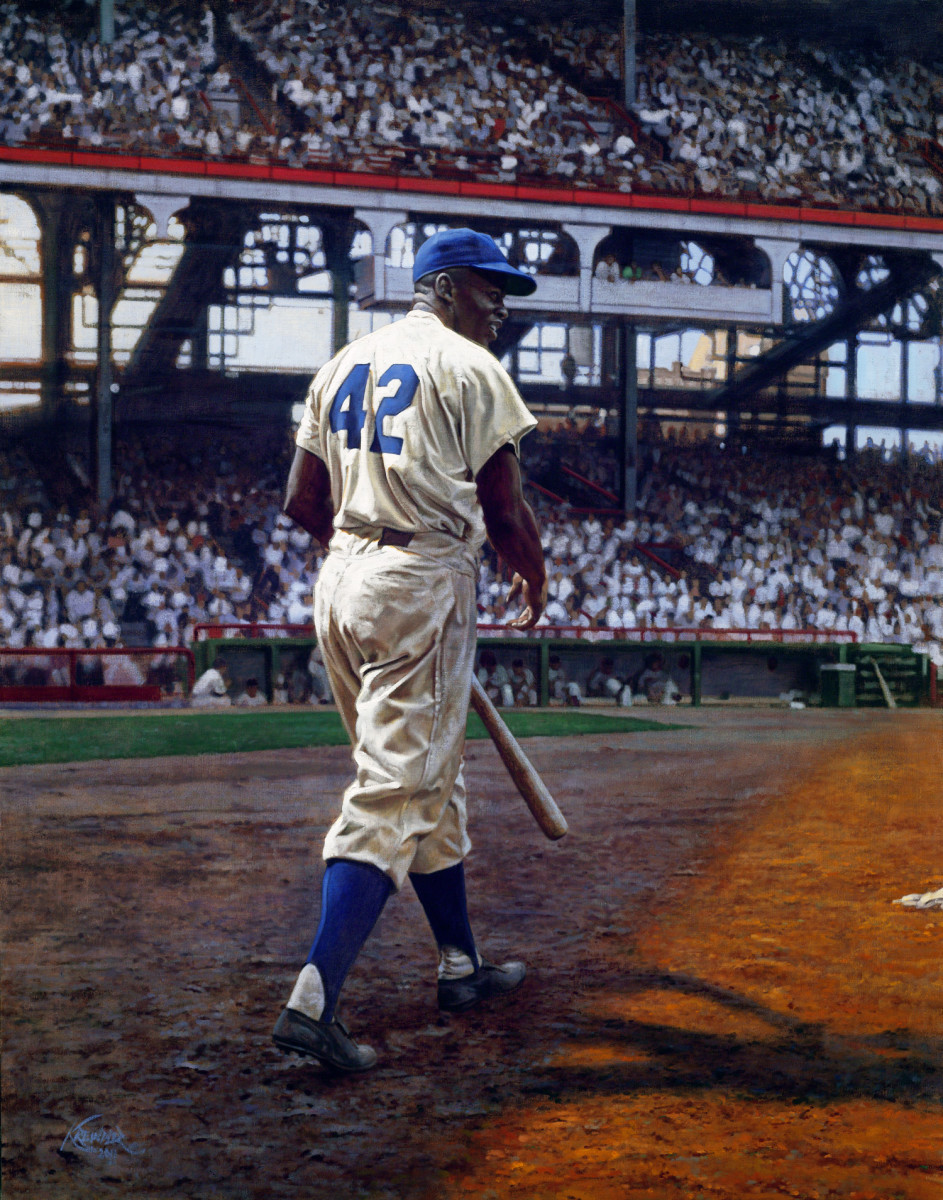
Jackie Robinson: "This portrait of Jackie is typical of my color studies - they act as preparatory work for my larger, more fully-realized pieces. The studies tend to be looser in finish and a bit more bold, and almost always are only 5" x 7". In this particular one, I was trying to play a bit with the cooler towns reflecting off of Jackie's dark skin - sometimes you can really see the most beautiful blues and lavenders coming from the reflection of an overcast sky."
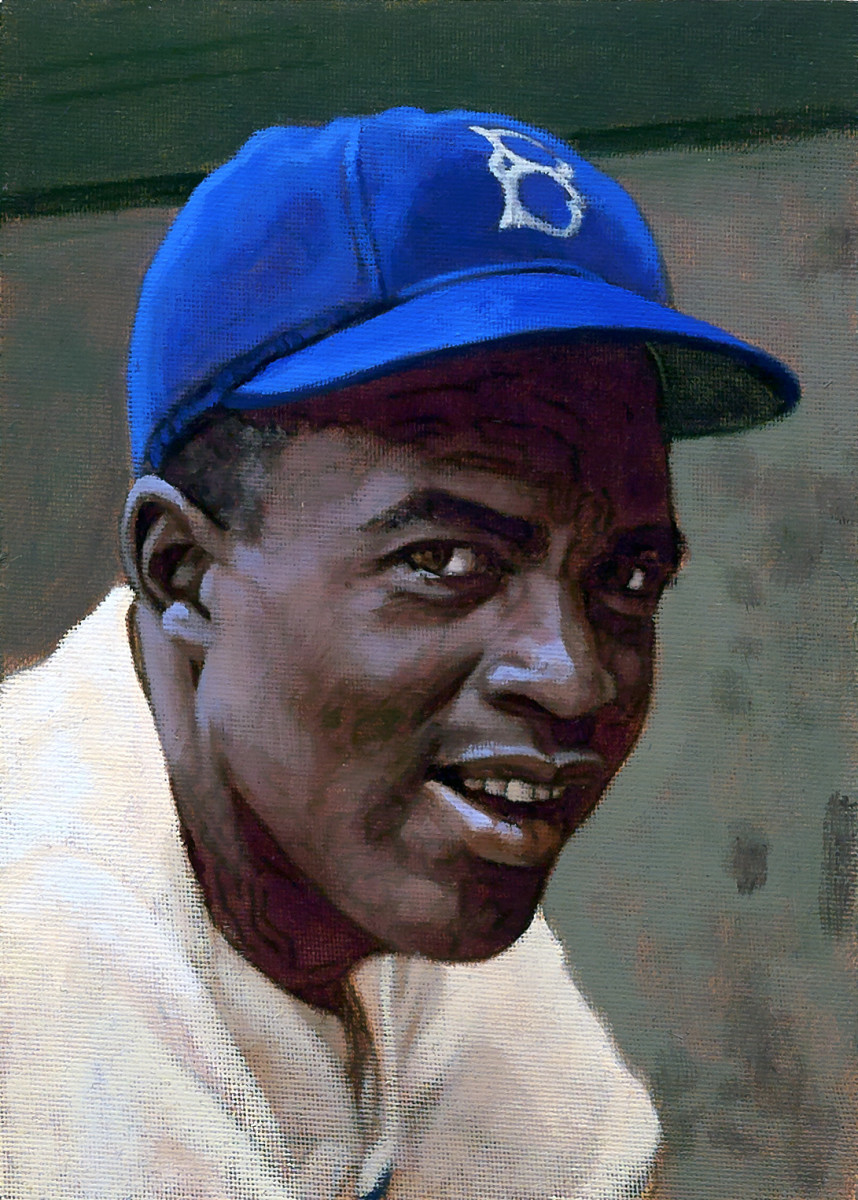
Jose Bautista: "Performance Art", 18" x 24", oil on linen. "The fella who commissioned this is a big Blue Jays fan, and I had no idea how much of a divisive moment it was until I actually painted it. Certainly, there's a big to-do about whether Jose was showboating with the bat flip, but I always thought it was refreshing to see that kind of emotion during a big spot."
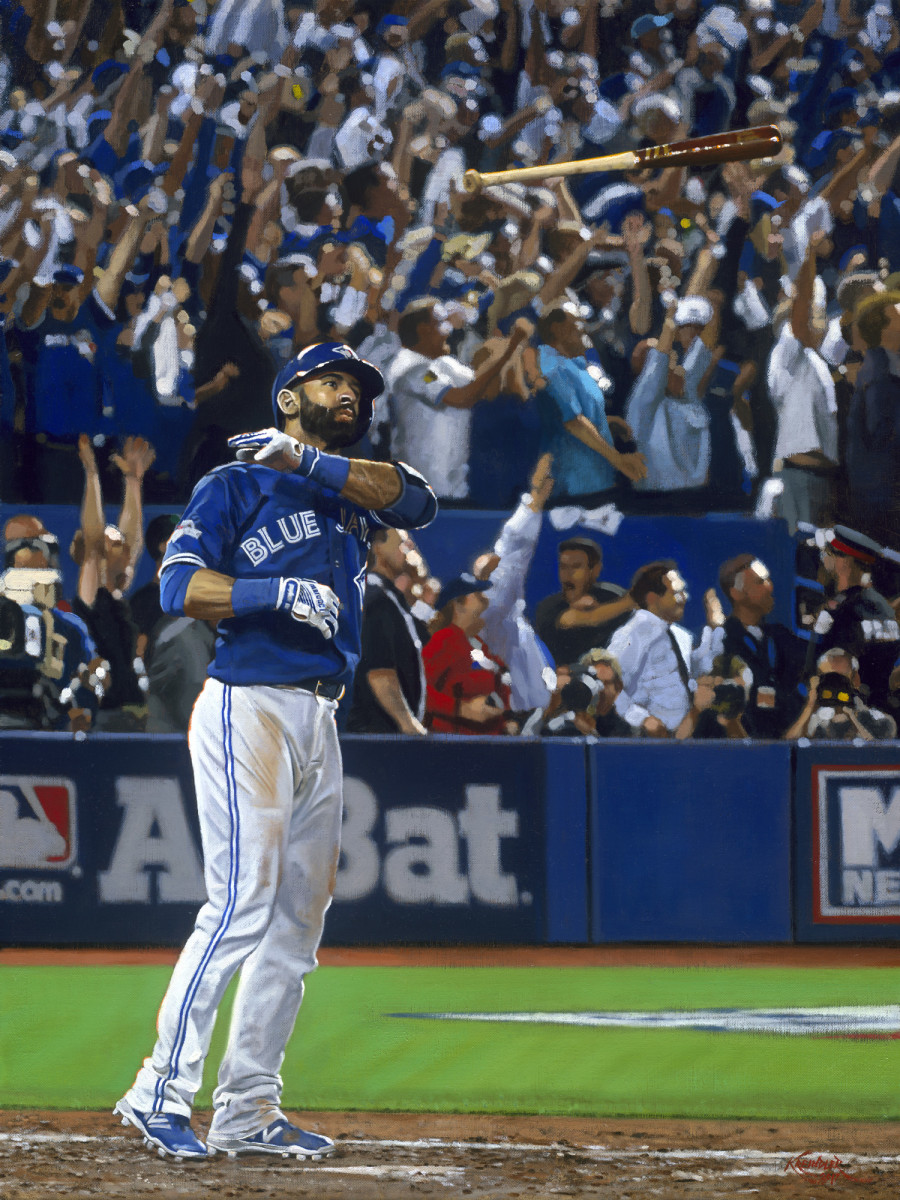
Babe Ruth, Red Sox: "The Boston Terror", 16" x 20", oil on linen. "It was all about the light in this painting. I wanted the late afternoon sun to be peaking out in front of the Babe, with dark stormy clouds behind him. I don't know whether I was thinking that it was symbolic of the turmoil he brought the Red Sox towards the end of his tenure there, but I suppose that narrative works nicely regardless."
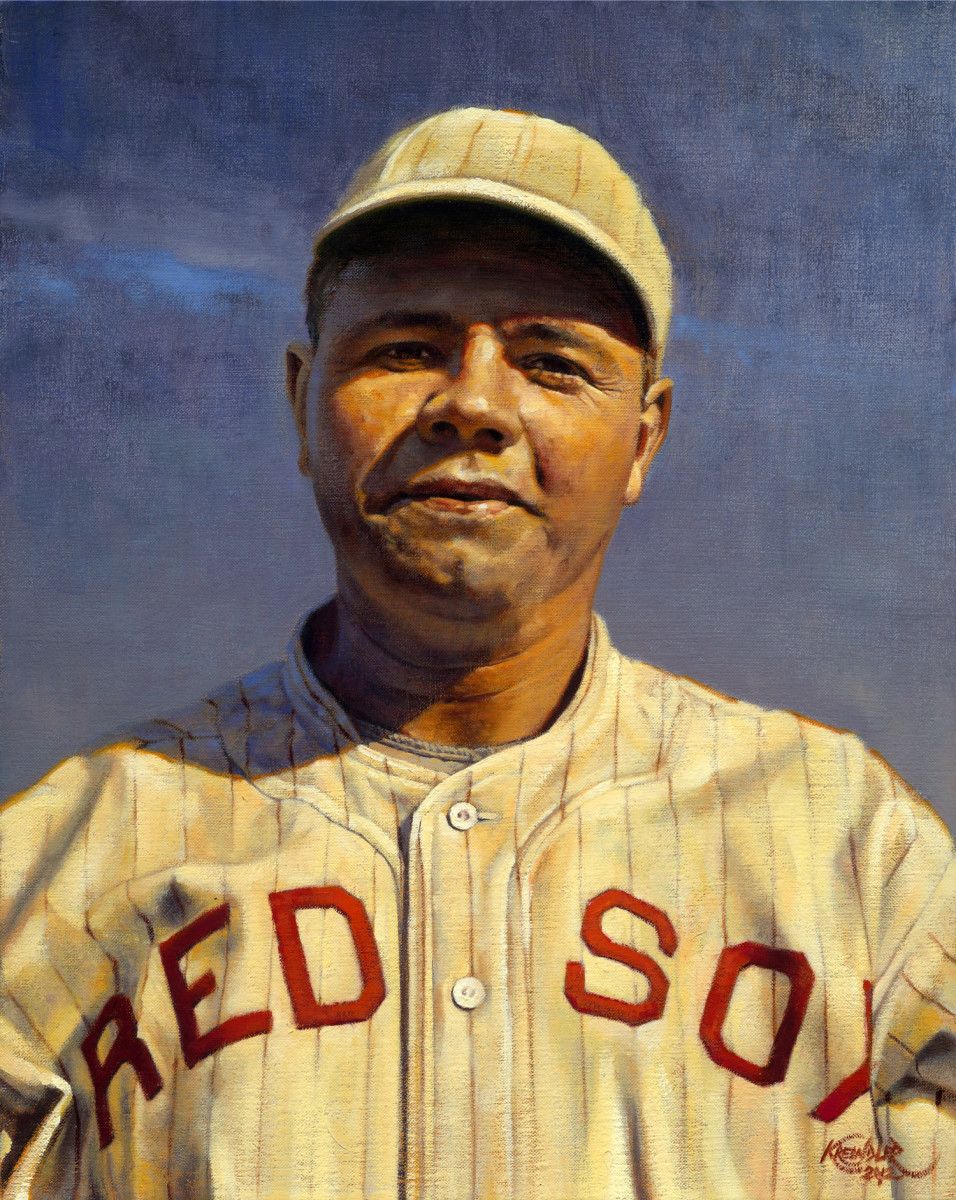
Josh Gibson: "Quiet Confidence", 22" x 28", oil on linen. "Still to this day, one of the players I wish that I could have seen in person the most is Josh. Like so many players from the Negro Leagues, it seems like a lot of what is fact about his career has become rather hazy and obfuscated. But the idea that he was perhaps the greatest slugger in the history of the game is still paramount. Attempting to bring him back to life was an honor."
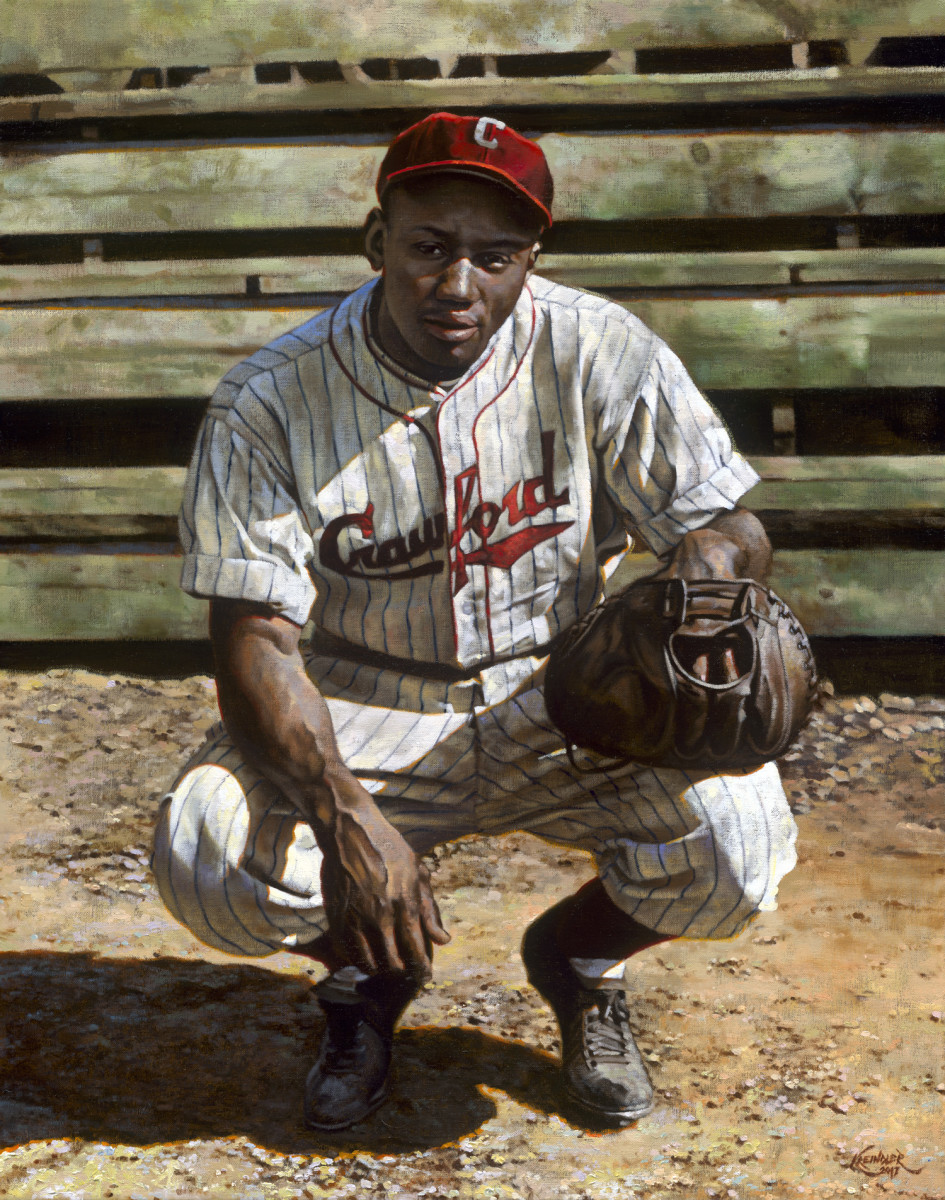
Ty Cobb: "Ford's Effort for Naught", 50" x 38", oil on linen. "Charles Conlon was the man responsible for capturing this moment on a glass plate negative, which became the most famous baseball image in history. My interpretation of it included a ton of research into the series that the Tigers had in New York during those few days. Apparently it was a pretty muggy summer afternoon, something I tried to convey in the overcast skies."
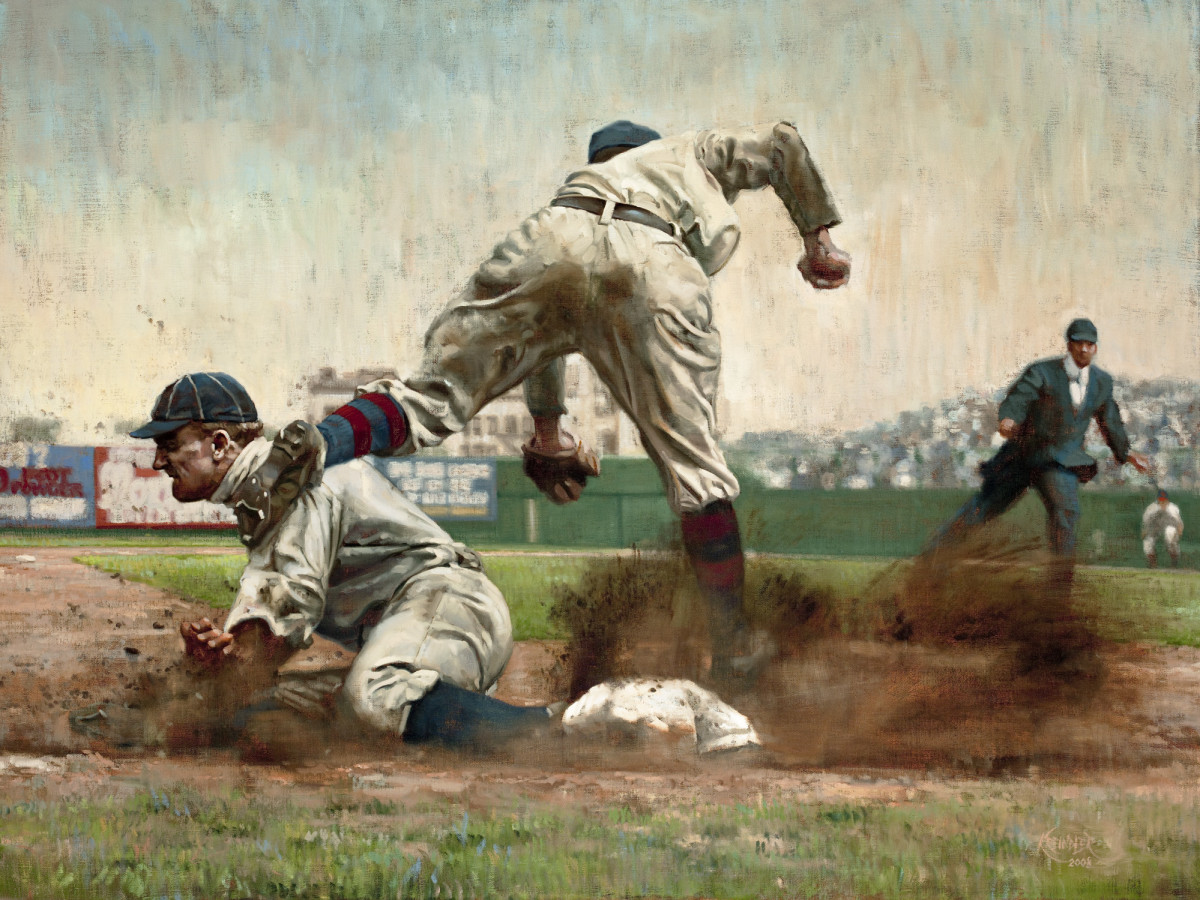
Sandy Koufax WS win: "Dodgers Take Seventh Game, Series", 54" x 38", oil on linen. "I loved the idea of seeing a gathering of ballplayers after a World Series win, especially when it seemed so much more tame than what we're used to in modern times. After Bob Allison struck out, Koufax just calmly walked off the mound towards the dugout, with his teammates jogging towards him to shake his hand. No pile-ups, no jumping around."

Sandy Koufax scoreboard: "Sandy's No-No", 24" x 33", oil on linen. "Based on a famous image by Walter Iooss Jr., the centerpiece of this painting is obviously that luminous scoreboard. I played around with the original photograph, making the action later in the game - before the last pitch, even. Also, it's worth noting that I made Willie Davis (the centerfielder) a bit larger than he would have appeared in the photograph, mainly to be more true to the size relationship we'd see with our own eyes."
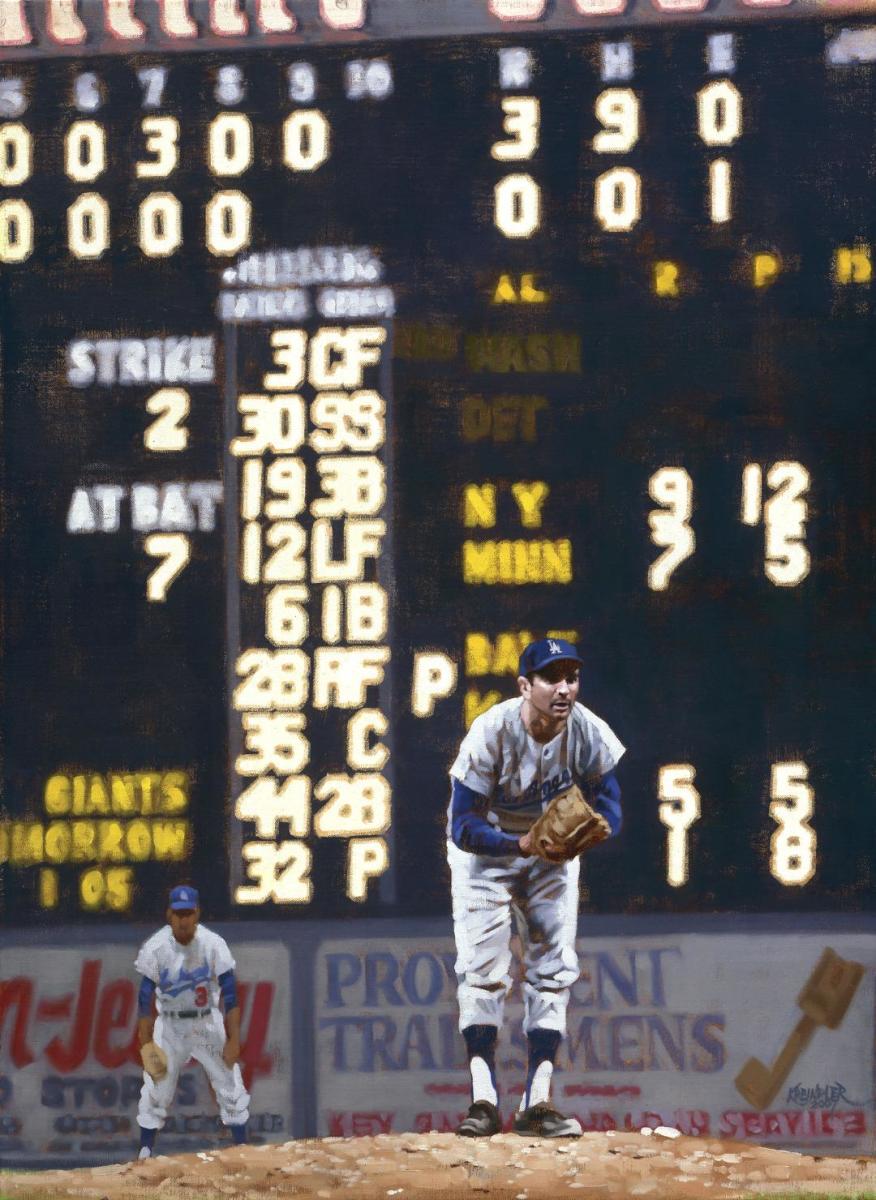
Sandy Koufax with trophy: "George and Sandy", 25" x 20", oil on linen. "This painting was commissioned by a family member of George Lederer, who was THE sportswriter for the Dodgers when they moved to Los Angeles in 1958. I absolutely loved the tenderness between George and Sandy in this image - you can really see that they had a deep appreciation for each other."
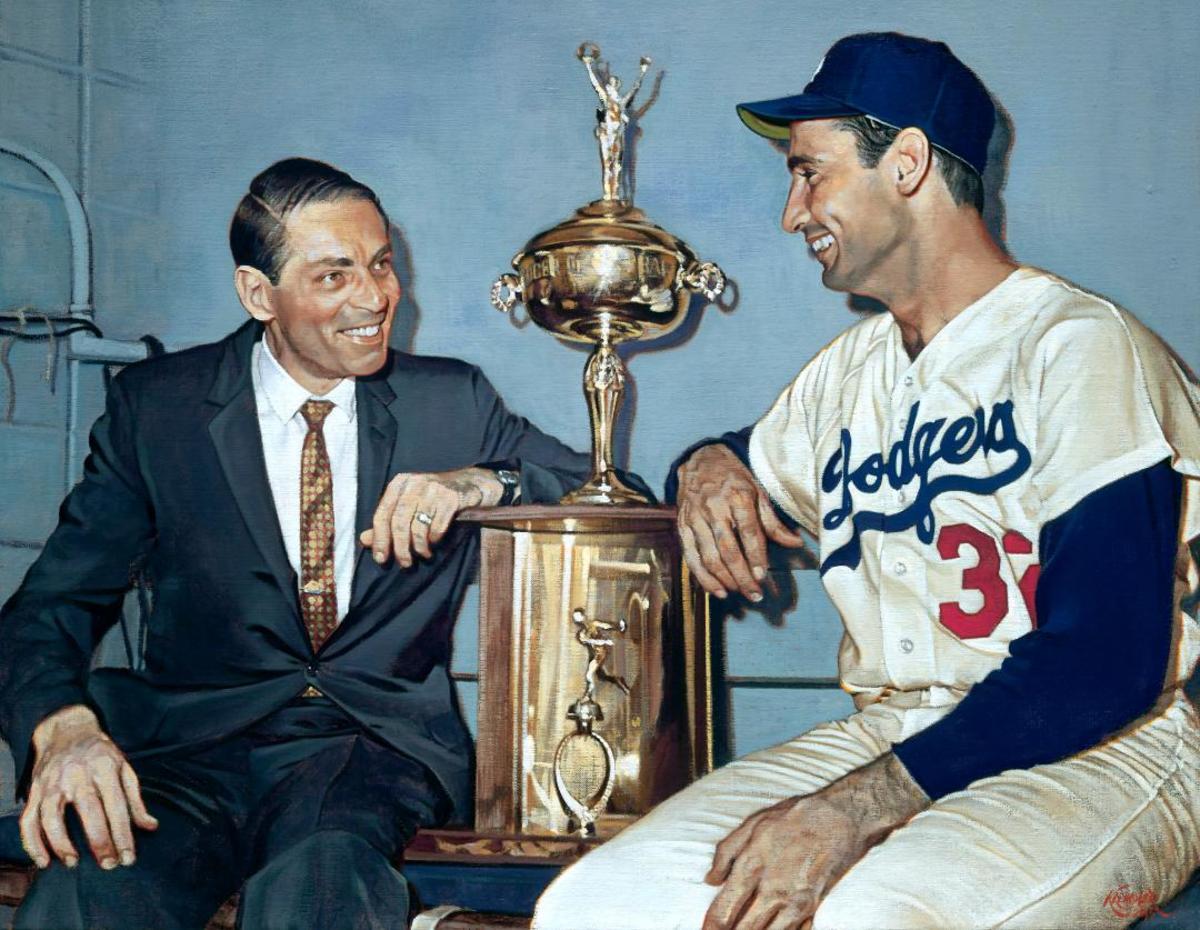
Roy Campanella. "Study of Roy Campanella, Topps 150 Years of Baseball Set", 6" x 8", oil on linen mounted to board.
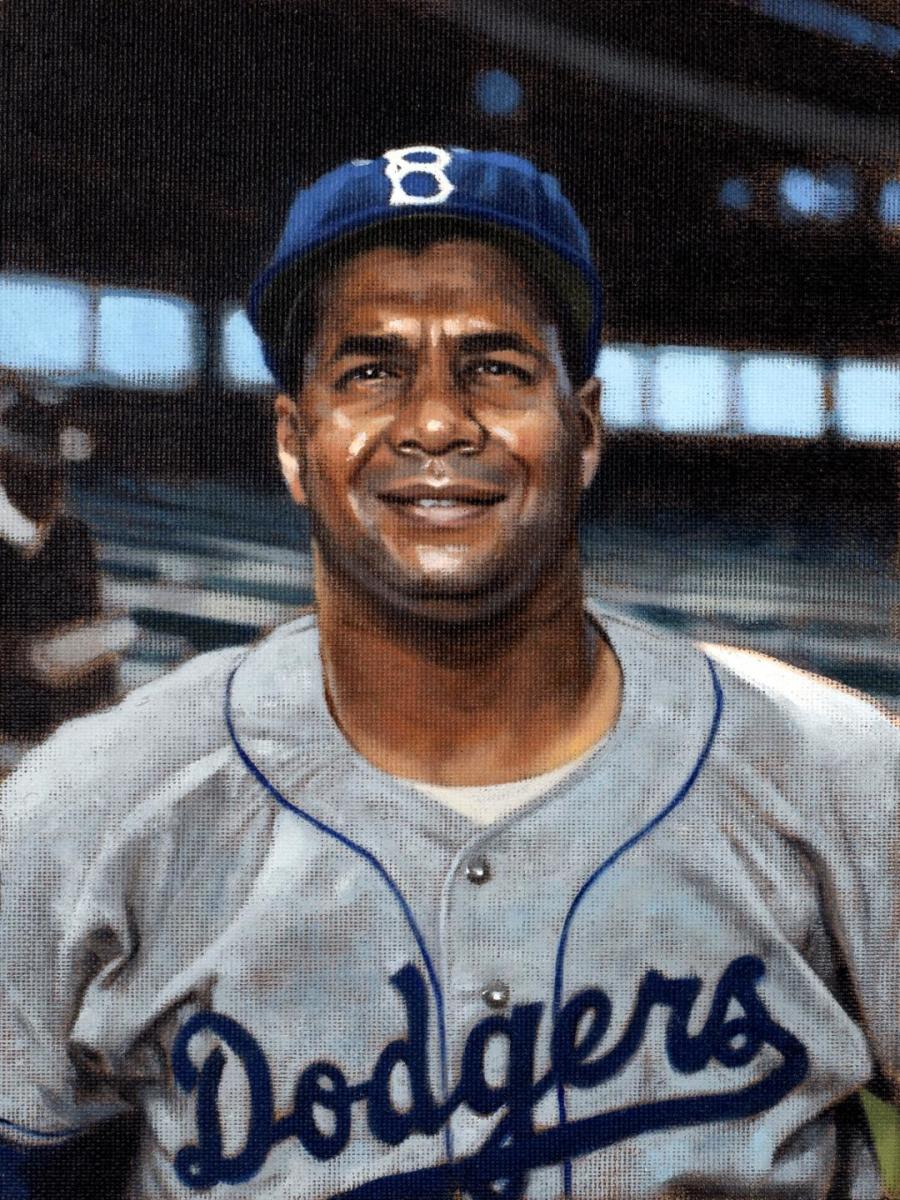
Don Drysdale: "Study of Don Drysdale, 1962", 5" x 7", oil in linen mounted to board.

Duke Snider: "Study of Duke Snider, Topps 150 Years of Baseball Set", 6" x 8", oil on linen mounted to board.

And remember, glove conquers all.
Howard Cole has been writing about baseball on the internet since Y2K. Follow him on Twitter.
